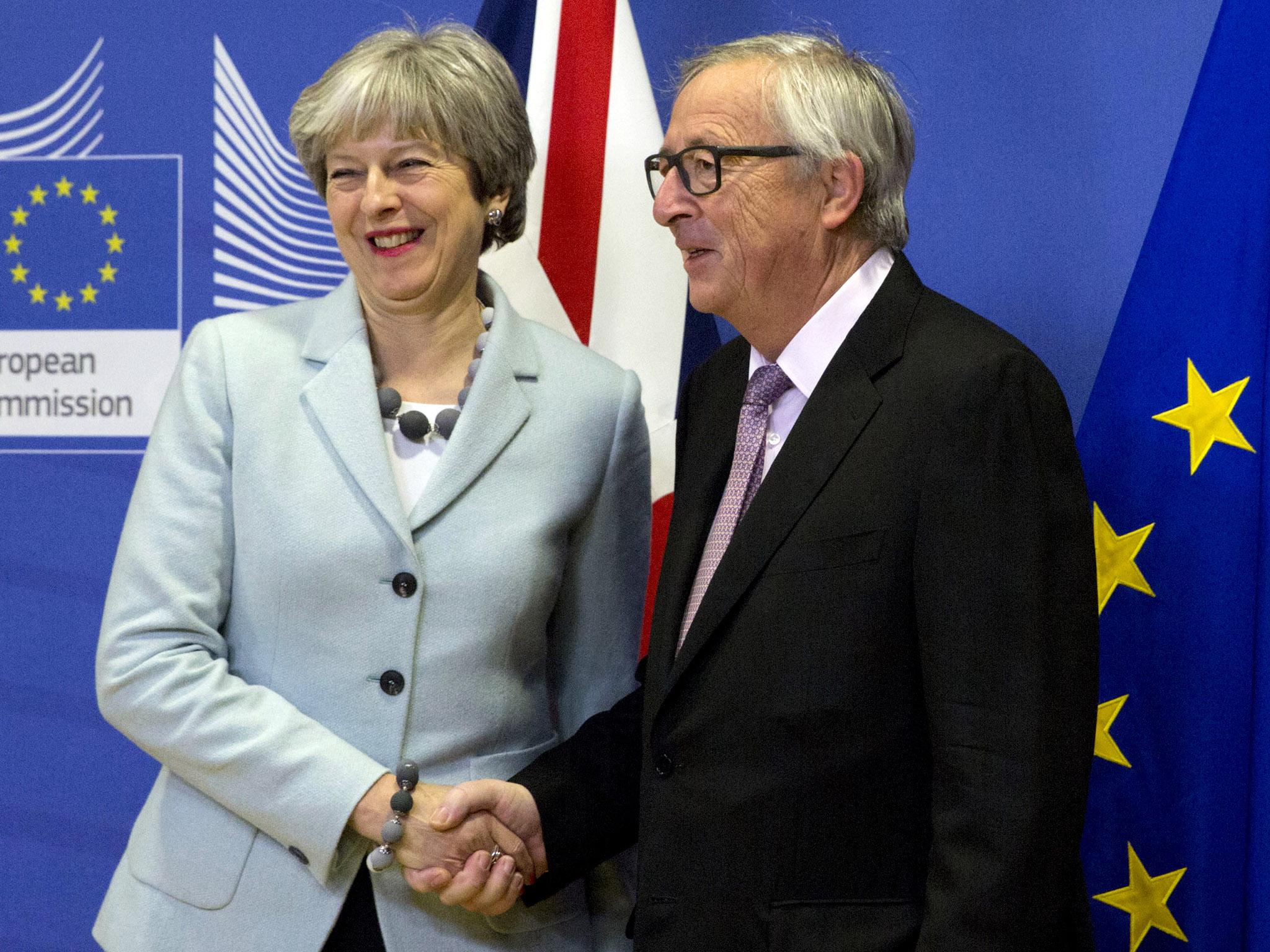EU demands Brexit agreement made legally binding after David Davis says it is just a 'statement of intent'
The European Parliament and European Council are to make a treaty a condition of trade talks

The Brexit agreement struck by Theresa May last week must be turned into a legally binding treaty if the UK wants to progress to trade talks, the EU is set to insist – after the British government appeared to row back from its commitments just days after it was agreed.
The Independent understands that the European Parliament is to revise its red lines following comments by David Davis that the agreement was just a “statement of intent” and claims in the Commons by Ms May that the UK would not be bound to pay its divorce bill if no trade talk was inked.
Meanwhile, a leaked draft copy of the European Council’s text on last week’s agreement, set to be agreed by EU27 heads of state and government on Friday, shows the countries will insist that the UK start drafting the deal into law.
MEPs are said to be “pissed off” with Mr Davis’s comments despite the Brexit Secretary having backed away from them the next day and claiming he meant the deal was “more than just legally enforceable”.
Mr Davis’s original comments provoked the Irish prime minister Leo Varadkar to make a public statement at the weekend, commenting that the deal was in fact “bulletproof” while other Irish politicians said the UK would be held “to account” on it.
A draft of the Thursday and Friday summit’s conclusions reported by The Times says: “Negotiations in the second phase can only progress as long as all commitments undertaken during the first phase are respected in full and translated faithfully in legal terms as quickly as possible.”
While the European Parliament’s resolution is still being drafted, it is understood that the text is likely to contain similar demands to the council’s text, and for the same reason – Mr Davis’s suggestion that the deal might not be honoured.
The EU27 leaders are expected to agree the Council’s text at a Brussels summit on Thursday and Friday, where they will also deem “sufficient progress” to have been made to move to the next phase of talks.
The Prime Minister added to the confusion over Britain’s will to stand by the deal on Monday in the House of Commons. When it was pointed out that paragraph 96 of the deal says the UK will pay the divorce bill even if no full trade deal is completed but only a framework, Ms May replied:
“No, that is not my understanding of the joint progress report or the position that we will be in. It is very clear at the beginning of the joint progress report that this is a set of proposals that have been put forward in the context of negotiating that final agreement.”
The agreement however says the UK agrees to the text “on the condition of an overall agreement under Article 50 on the UK’s withdrawal, taking into account the framework for the future relationship, including an agreement as early as possible in 2018 on transitional arrangements”.
As reported by The Independent last week the EU is expected to call for talks on a trade framework to be held back until the spring, after the conditions of a transition period has been agreed. A full trade agreement can only be negotiated once Britain has left the EU after March 2019.
Join our commenting forum
Join thought-provoking conversations, follow other Independent readers and see their replies
Comments
Bookmark popover
Removed from bookmarks